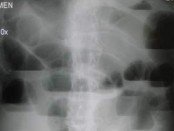Colon Mass Symptoms, Types and Causes
The colon is the last part of the gut. It is the longest part of the large intestine. Most of us know the colon for being the place where stool is formed and stored. Sometimes this stool can become a hard mass. However, it is not the only type of mass that can occur in the bowels. Some colon masses can serious and >> Read More ...







